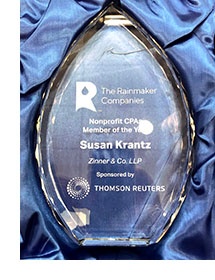When couples divorce, financial negotiations often involve alimony. The tax rules regarding alimony were dramatically changed by the Tax Cuts and Jobs Act (TCJA) of 2017, but existing agreements have been grandfathered. In addition, the old rules remain in effect for divorce and separation agreements executed during 2018. Next year, the rules will change, and the roles will be reversed.
Under divorce or separation agreements executed in 2018, and for many years in the past, alimony payments have been tax deductible. Moreover, these deductions reduce adjusted gross income, so they may have benefits elsewhere on a tax return. While the spouse or former spouse paying the alimony gets a tax deduction, the recipient reports alimony as taxable income.
Shifting into reverse
Beginning with agreements executed in 2019, there will be no tax deduction for alimony. As an offset, alimony recipients will not include the payments in income.




 A proposed bill has the potential to put taxpayers in a charitable mode.
A proposed bill has the potential to put taxpayers in a charitable mode.






